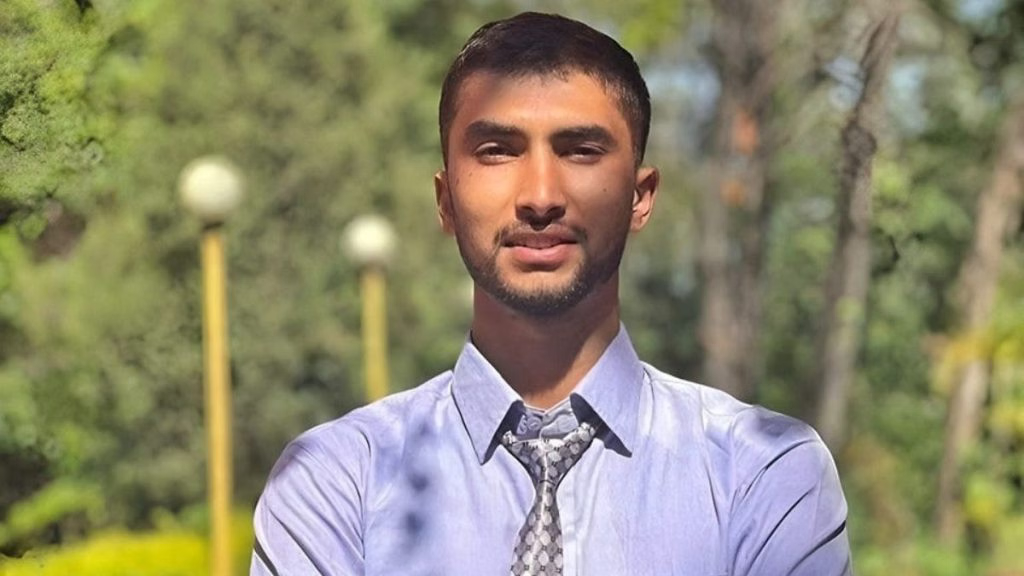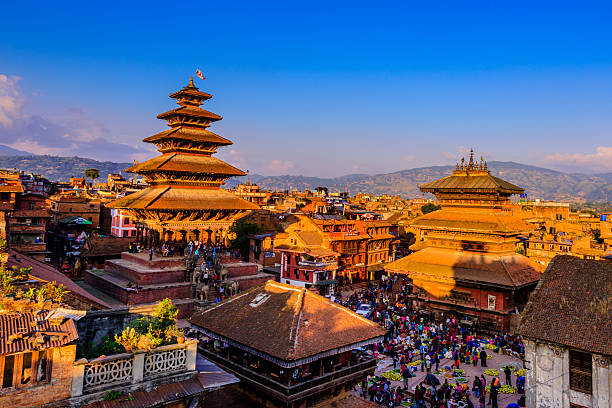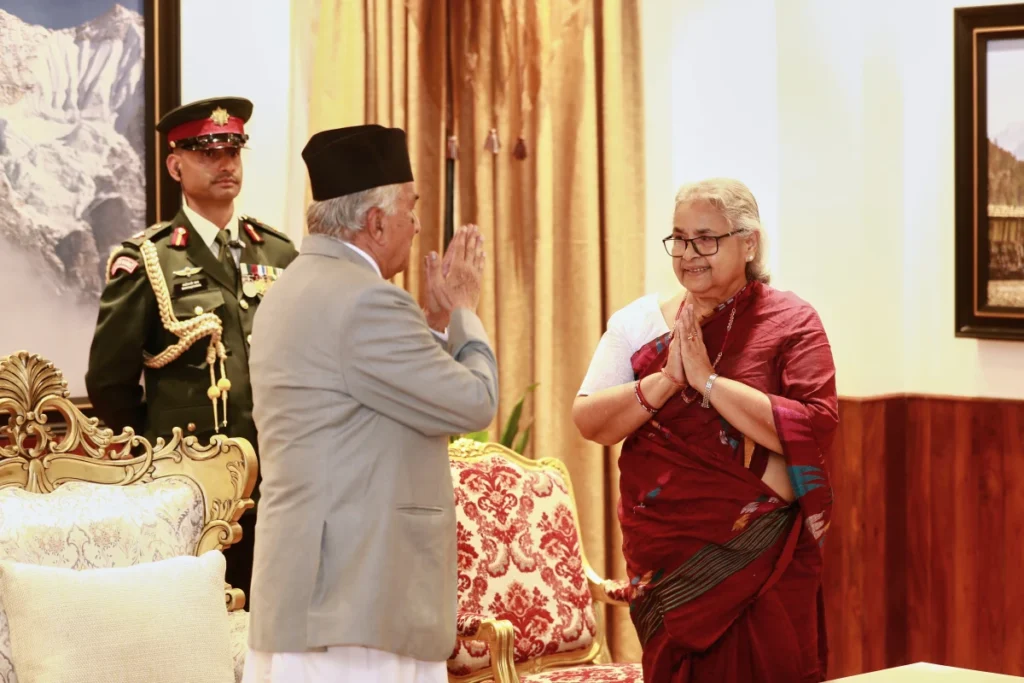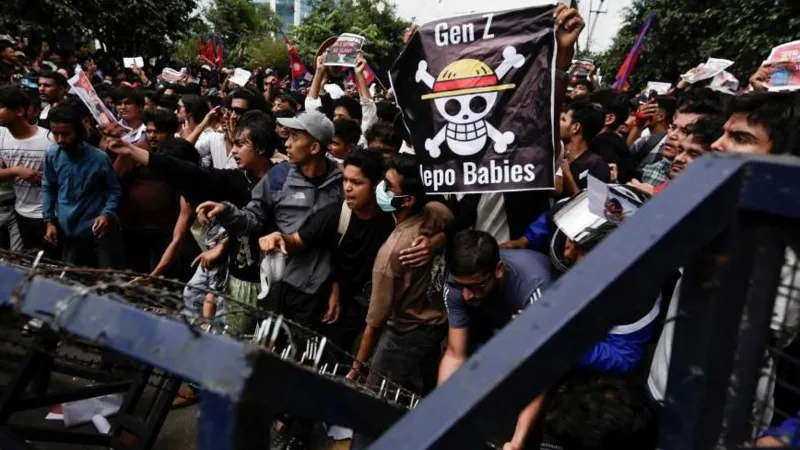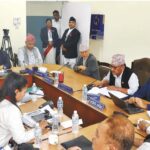Now Reading: Nepal’s Political Turmoil: Vandalism, Generational Frustrations, and the Way Forward
-
01
Nepal’s Political Turmoil: Vandalism, Generational Frustrations, and the Way Forward
Nepal’s Political Turmoil: Vandalism, Generational Frustrations, and the Way Forward

Nepal is grappling with fresh political unrest as protests led by youth spiraled into vandalism of key government buildings and residences. While many blame Generation Z, reports suggest older groups and even escaped convicts fueled the violence, leaving Kathmandu fearful of criminalization. The crisis highlights Nepal’s deeper challenge: repeated government collapses, lack of civic education, and a leadership gap that has persisted since the parliamentary system’s introduction 18 years ago. Experts argue that reforms—including constitutional amendments, civic training, and an end to dynastic politics—are urgently needed to prepare future generations and restore stability.
Nepal is once again facing a period of turbulence. In recent weeks, protests across the country have spiraled into large-scale vandalism of public and private properties, raising grave concerns about law and order. What began as demonstrations largely associated with Generation Z soon took a more sinister turn when older groups—many disguised as young protesters—began attacking and vandalizing key government and residential buildings.
Among the buildings targeted were Singha Durbar, the Parliament, the Supreme Court, private schools and colleges suspected to be associated with ministers’ families, the Kantipur TV building, and several ministers’ homes., alongside government vehicles and administrative facilities. Reports and video footage circulating online further claim that a number of escaped convicts and criminal elements infiltrated the protests, exacerbating the violence and criminalizing the movement in Kathmandu and beyond.
Although the army has stepped in to stabilize the situation, a leadership vacuum remains. The unrest has highlighted a deeper structural issue—Nepal’s lack of political training and civic education for its youth since the parliamentary system was introduced 18 years ago. Within that period, governments have collapsed 15 times, exposing chronic instability and opportunism at the core of Nepali politics.
Coup or Collapse of Trust?
Some defense and international affairs experts have gone as far as calling the unrest a “silent coup,” executed by inflaming the emotions of Generation Z. Yet, blaming only the youth masks the wider reality: decades of weak governance, opportunistic politics, and failure to nurture an informed citizenry have all created the conditions for today’s turmoil.
The recent vandalism cannot be justified. It has inflicted financial losses, damaged Nepal’s international image, and further eroded public trust in democratic institutions. However, it is also a symptom of suppressed sentiments among young Nepalis—a generation that feels ignored, untrained, and unprepared to shoulder the responsibilities of leadership.
The Way Forward
For Nepal to rise above repeated cycles of instability, the newly elected government must commit to long-term reforms that go beyond party politics. A few critical steps stand out:
1. Constitutional Amendments
A. Civic Education Mandate: For Nepal’s democracy to survive and grow stronger, young people must understand how the system works. At present, most students leave school without any real knowledge of the Constitution, Parliament, Judiciary, or their own civic duties. This gap has created generations of citizens who are unaware of their rights and responsibilities, making them more vulnerable to manipulation by opportunistic leaders.
To fix this, the Constitution should be amended to make civic and constitutional education a compulsory subject from Grade 8 onwards in all schools and colleges. Students should learn:
- How laws are made and why they matter.
- The principle of separation of powers—that the executive, judiciary, and legislature must function independently to keep democracy healthy.
- Citizens’ rights and duties under the Constitution.
- The importance of accountability, transparency, and the rule of law.
This will ensure that in the next 15–20 years, Nepal will have a generation that is informed, responsible, and capable of taking leadership roles, instead of being unprepared and easily swayed by populism or emotional politics.
B. Ban on Dynastic Politics: One of the biggest weaknesses in Nepal’s parliamentary democracy has been the rise of family-based or dynastic politics. In many cases, when a political leader retires, loses credibility, or passes away, their parliamentary seat is simply transferred to a son, daughter, or another family member (Through biased voting campaigns) . This practice shuts the door on young, talented leaders from outside political families and keeps politics limited to a small circle of elites.
The Constitution should therefore be amended to prohibit the automatic transfer of parliamentary seats to family members. Instead, all candidates must go through the same democratic selection process, either through party primaries or open elections.
This change will:
- Break the cycle of nepotism and political monopoly.
- Create fresh opportunities for new leaders with genuine talent and commitment.
- Ensure that political parties focus on performance and merit, not family connections.
By ending dynastic politics, Nepal can move closer to a truly representative democracy, where leadership is earned by ability and service—not inherited by birth.
C. Building an Inclusive Society: Recognition of Same-Sex Marriage
An inclusive society is the need of the hour. Nepal has already taken important steps toward equality, but progress on same-sex marriage recognition has been deliberately stalled by past governments that either lacked awareness of the real requirements or allowed personal biases to dictate policy. This hesitation has left a significant section of citizens without the dignity and legal protections they deserve.
Nepal must now move decisively to recognize same-sex marriages—not just as a symbolic gesture but as a comprehensive legal reform. Doing so would set a progressive precedent in South Asia and align with Nepal’s constitutional promise of equality and non-discrimination.
However, recognition alone is not enough. A marriage is more than a ceremonial bond; it carries with it rights, responsibilities, and protections under law. To ensure genuine equality, existing laws must be amended to include same-sex couples in every area of public life:
- Inheritance Laws – Guarantee that same-sex spouses have equal rights over property and assets, ensuring security for families.
- Health and Insurance Laws – Allow same-sex partners to be primary nominees in medical decisions, health benefits, and insurance coverage.
- Adoption Laws – Recognize joint adoption by same-sex couples, giving children the same legal and social protections as those in heterosexual families.
- Government Service Rules – Extend spousal benefits such as pensions, housing, and travel allowances equally to same-sex partners in government jobs.
- Taxation and Financial Laws – Amend tax codes so same-sex couples can file jointly, claim deductions, and access financial benefits without discrimination.
By integrating these reforms, Nepal will not only acknowledge same-sex marriage but also embed it within the broader legal framework, providing lasting dignity, protection, and stability for homosexual couples.
In the long run, such steps will prevent future social unrest, strengthen Nepal’s democratic values, and demonstrate that the country is committed to building an inclusive and progressive society where no citizen is left behind.
In the long run, integrating these amendments will normalize legal protections for homosexual couples and prevent future disputes. More importantly, it will bring a sense of security and dignity, ensuring that their marriages are not just symbolic but carry the same legal weight as any other.
2. Strengthening Democratic Institutions
Leadership Training Programs
One of the biggest reasons for Nepal’s repeated leadership crises is that young people are not trained or prepared for governance. Political leadership has mostly been limited to a few families or individuals, while the majority of the youth have never been given opportunities to learn how the system works. To fix this, Nepal should create national-level youth leadership academies in collaboration with universities, NGOs, and international partners.
These academies would provide courses and practical training in:
- Governance and Public Administration – how governments function and how policies are implemented.
- Diplomacy and International Affairs – preparing future leaders to represent Nepal in the global arena.
- Ethics and Accountability – making sure leaders understand that public service is about responsibility, not privilege.
Such institutions will ensure that within the next 10–20 years, Nepal develops a pool of capable leaders ready to guide the country responsibly, rather than repeating cycles of unprepared governance.
3. Political Inclusivity and Accountability
Nepal’s democracy has often been dominated by two or three major political groups, leaving little space for new or smaller parties to grow. This monopoly creates frustration among citizens who feel their voices are not represented. To strengthen democracy, Nepal must encourage genuine multi-party participation by ensuring equal access to funding, fair media coverage, and protection from political intimidation.
A system that welcomes multiple parties will:
- Give citizens more choices in elections.
- Encourage healthy competition among parties, pushing them to perform better.
- Prevent democracy from being held hostage by a small group of leaders.
Independent Monitoring Bodies
Corruption and unkept promises have been constant problems in Nepali politics. To restore public trust, independent and non-political bodies should be established to monitor the performance of elected representatives. These bodies could:
- Track whether leaders are fulfilling their election promises.
- Audit financial transparency and prevent misuse of public funds.
- Investigate corruption without political pressure.
Such mechanisms will make sure that politicians remain accountable to the people, not just to their parties or personal interests.
4. Learning from Global Examples
Countries such as the United Kingdom, despite their smaller size, have thrived due to strong institutions, progressive laws, and inclusive policies. Nepal too, if it takes a visionary approach, can stabilize and grow economically and politically.
Conclusion
Nepal is still a young democracy, but the current crisis underscores a painful truth: without an informed generation and trusted leadership, the country risks repeating its past failures. The vandalism and unrest, while unacceptable, should be read as a wake-up call.
To secure its future, Nepal must reform its constitution, educate its youth, curb nepotism, recognize diversity in its citizens’ rights, and strengthen its democratic institutions. Only then can it raise a responsible Generation Alpha and prevent the leadership gaps that have haunted it for the past two decades.
A wise and visionary approach today could set Nepal firmly on the path of stability and progress tomorrow.

